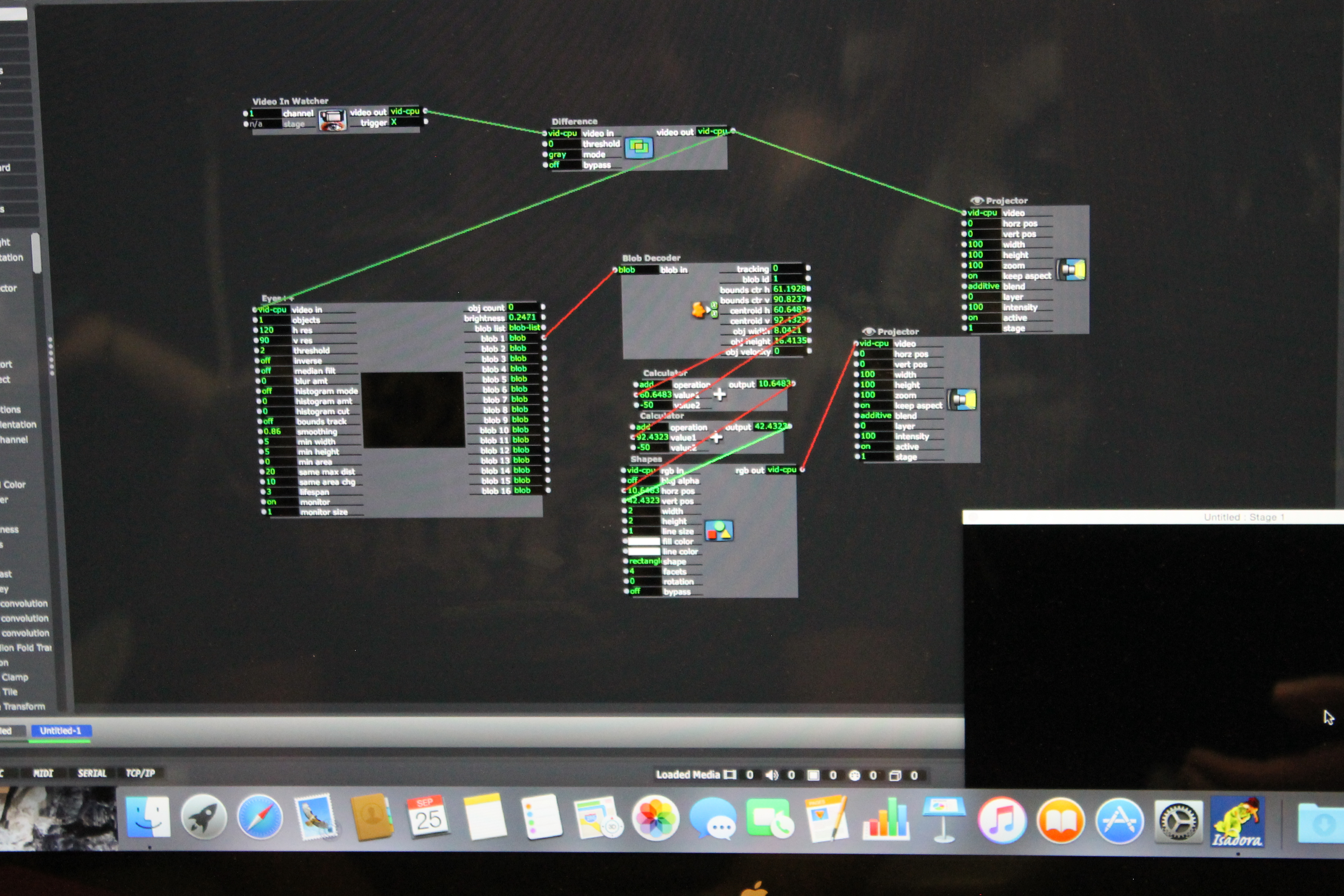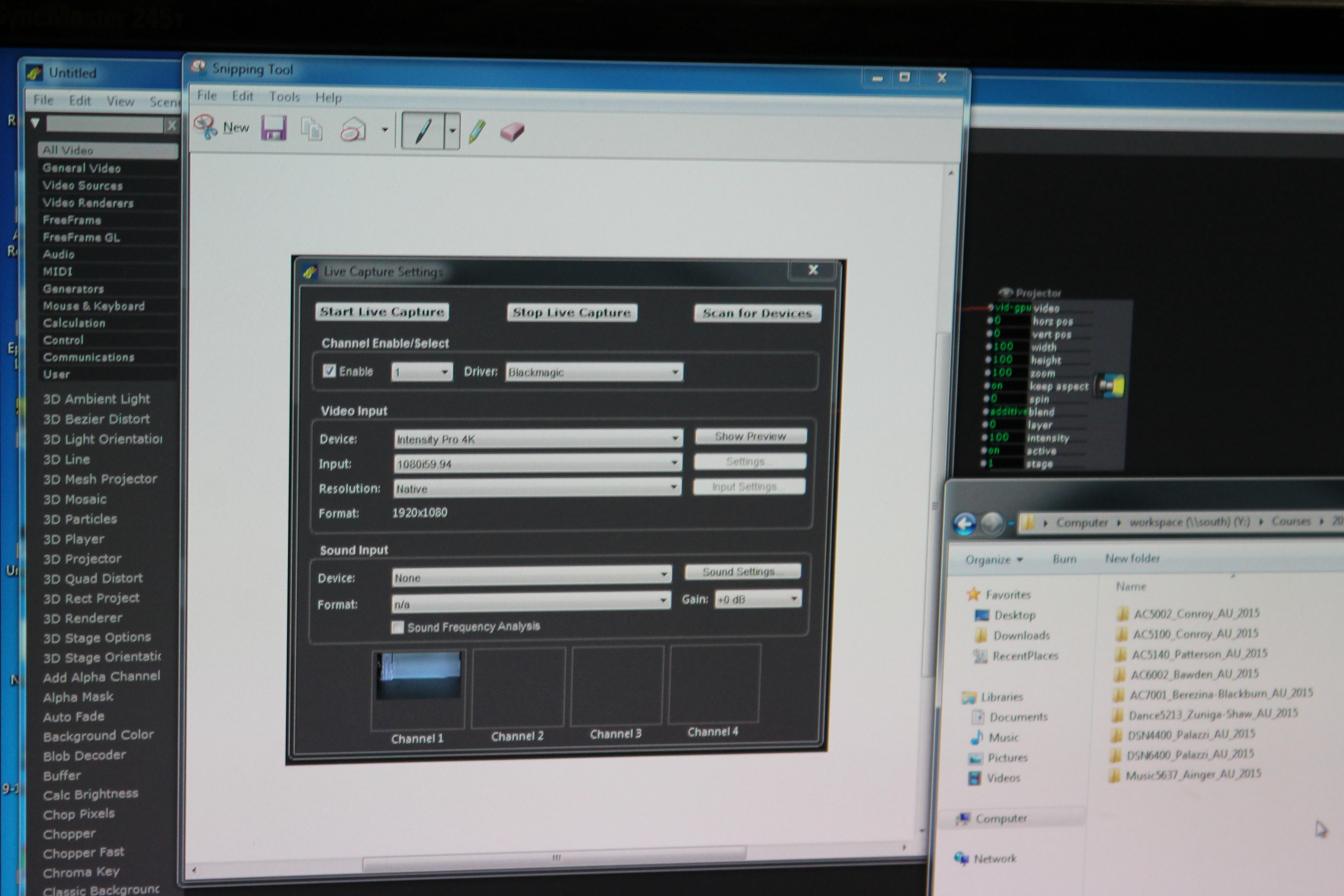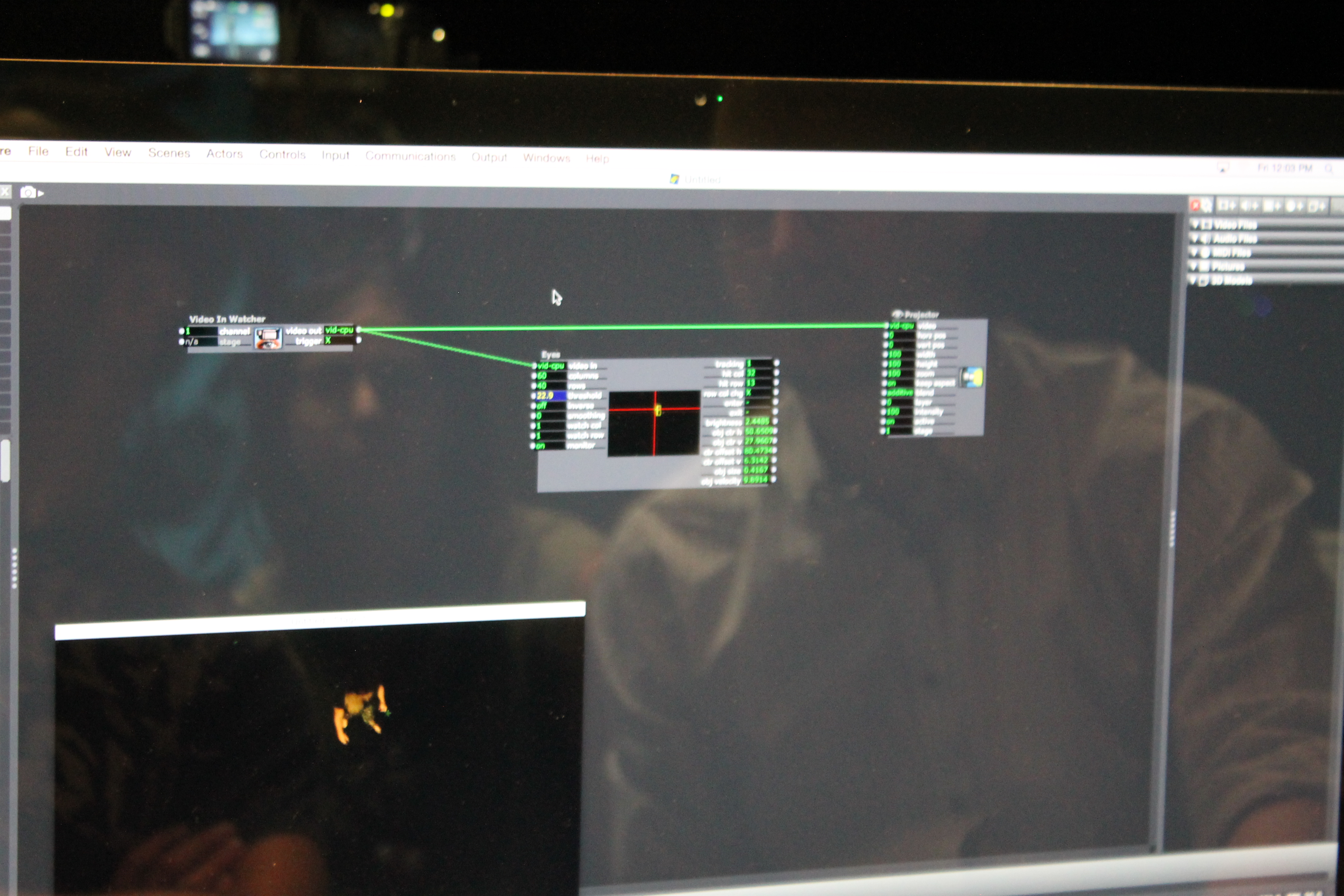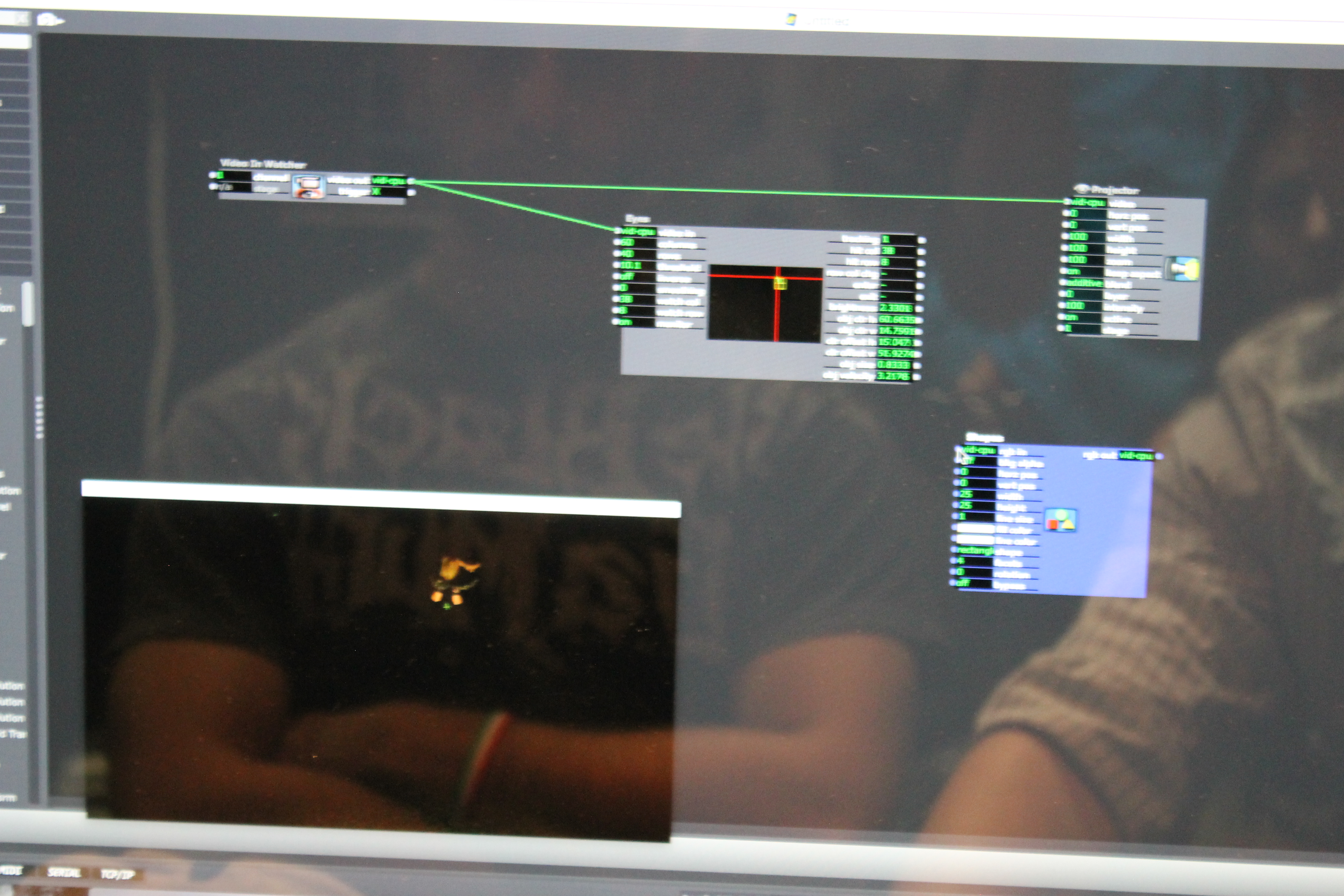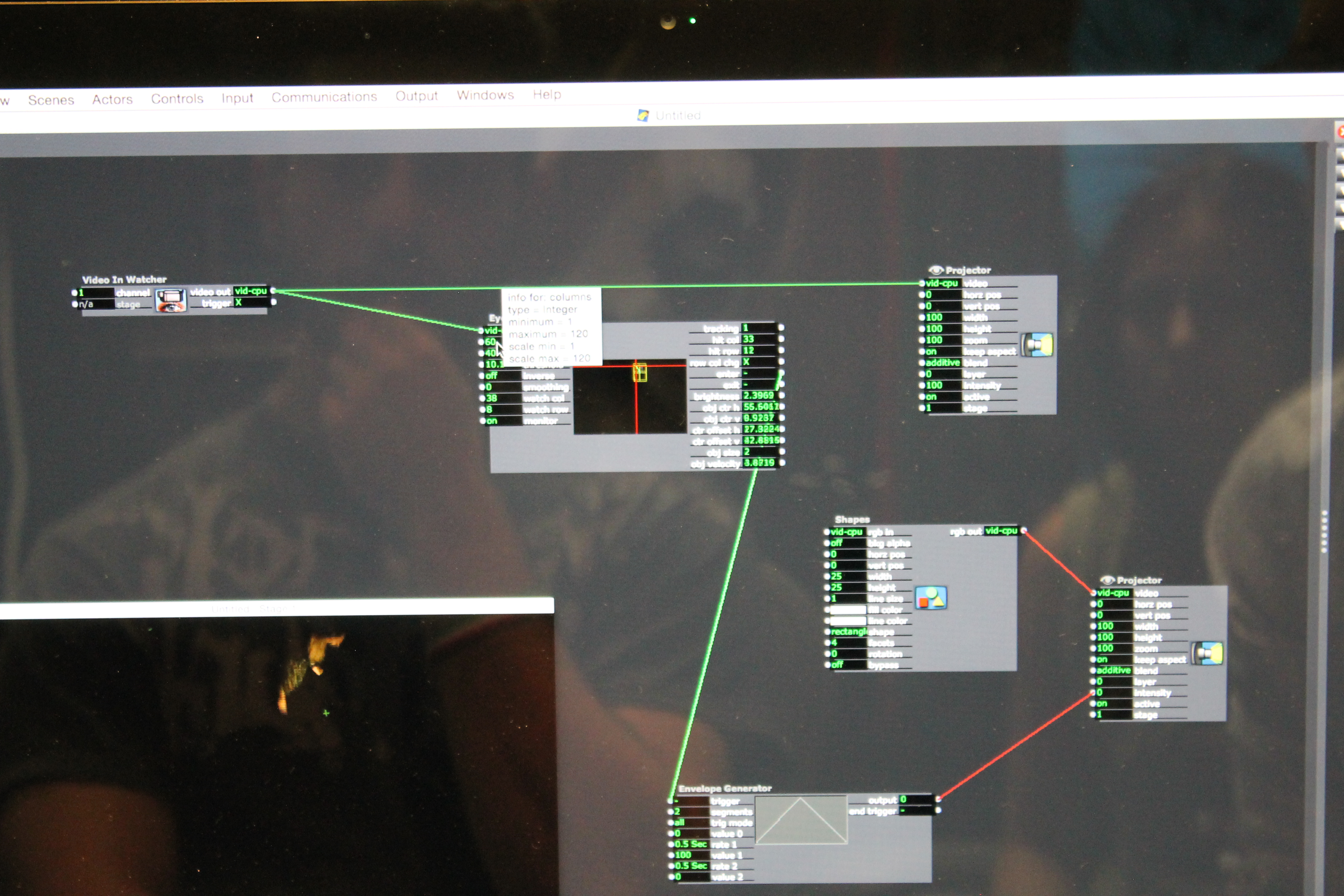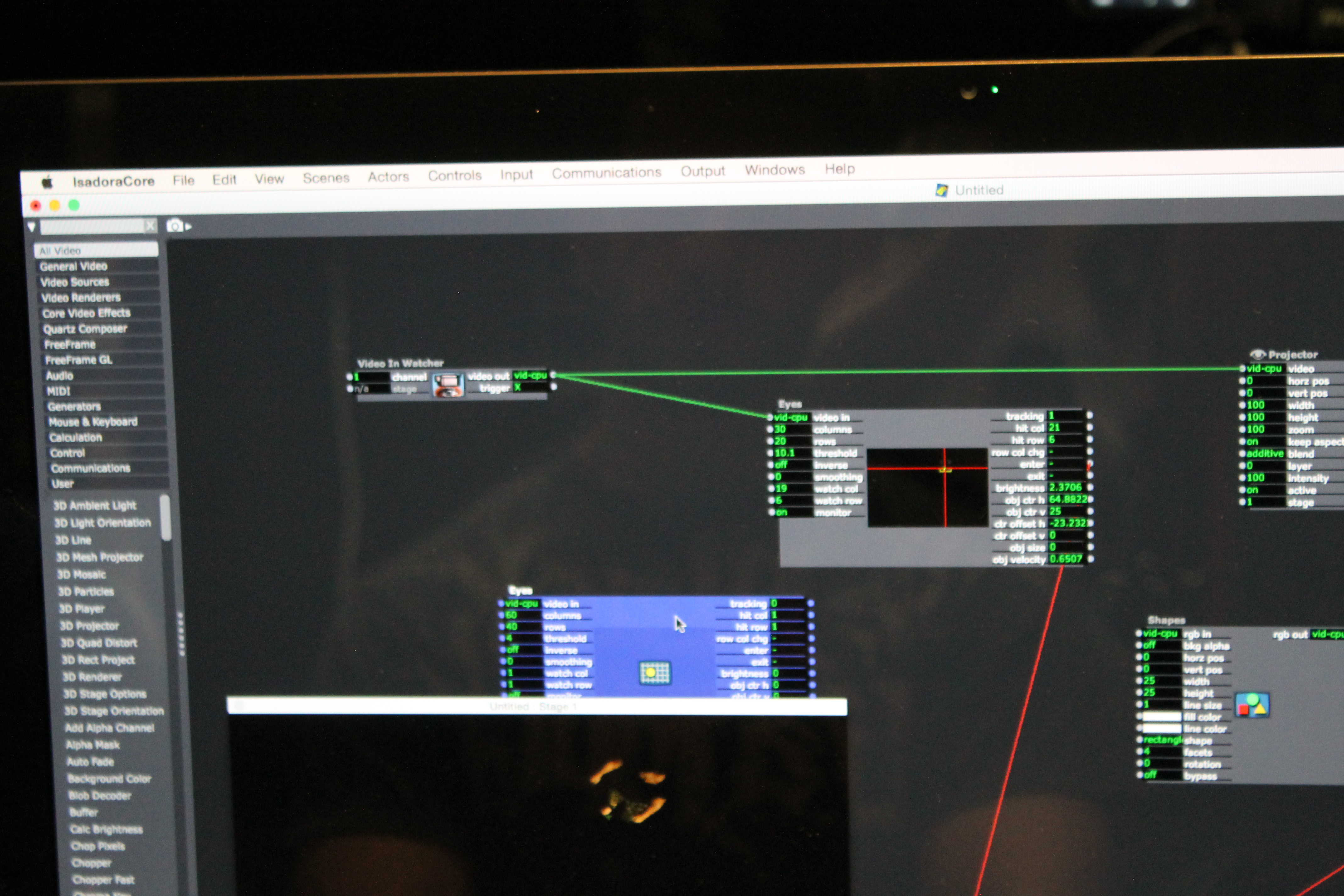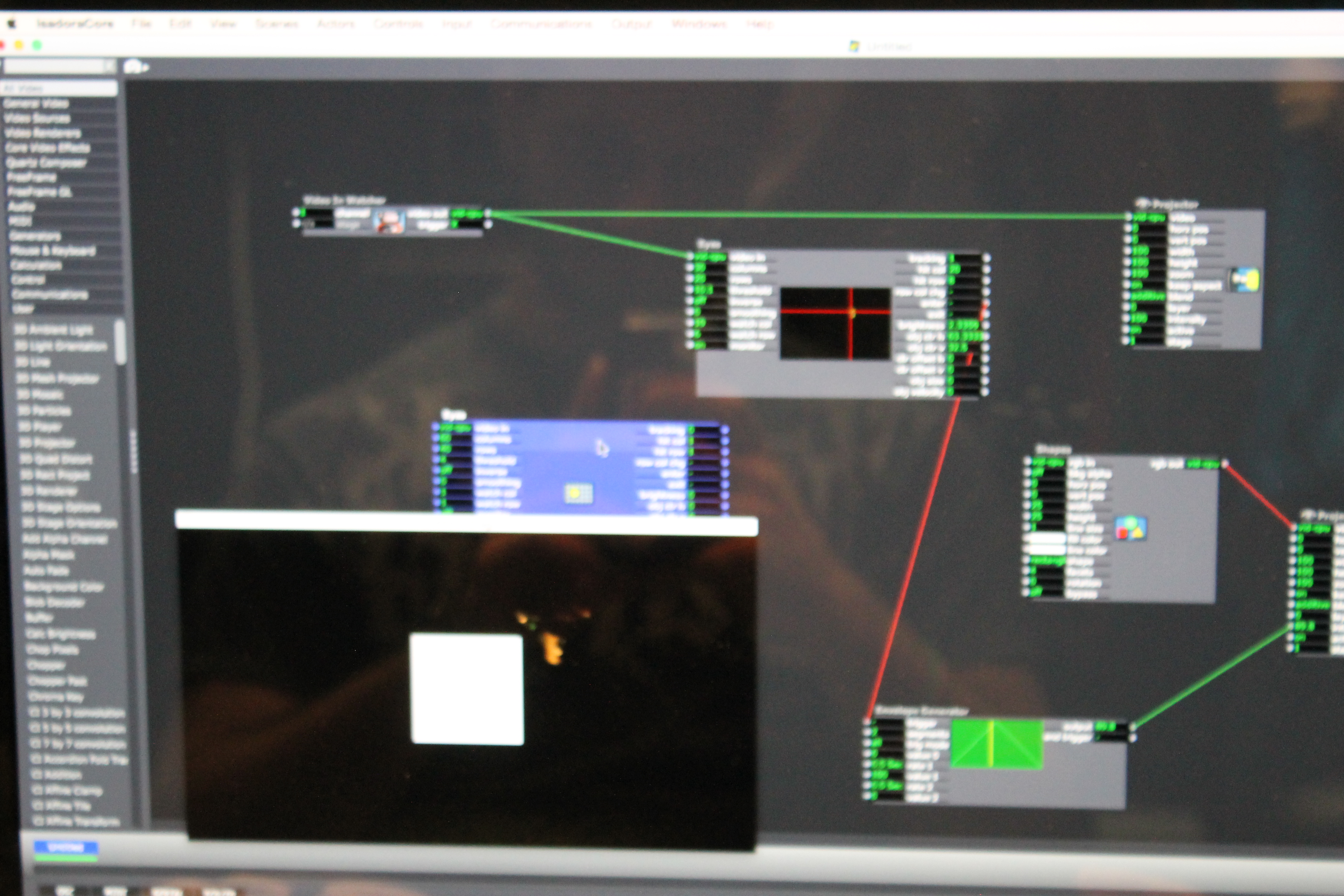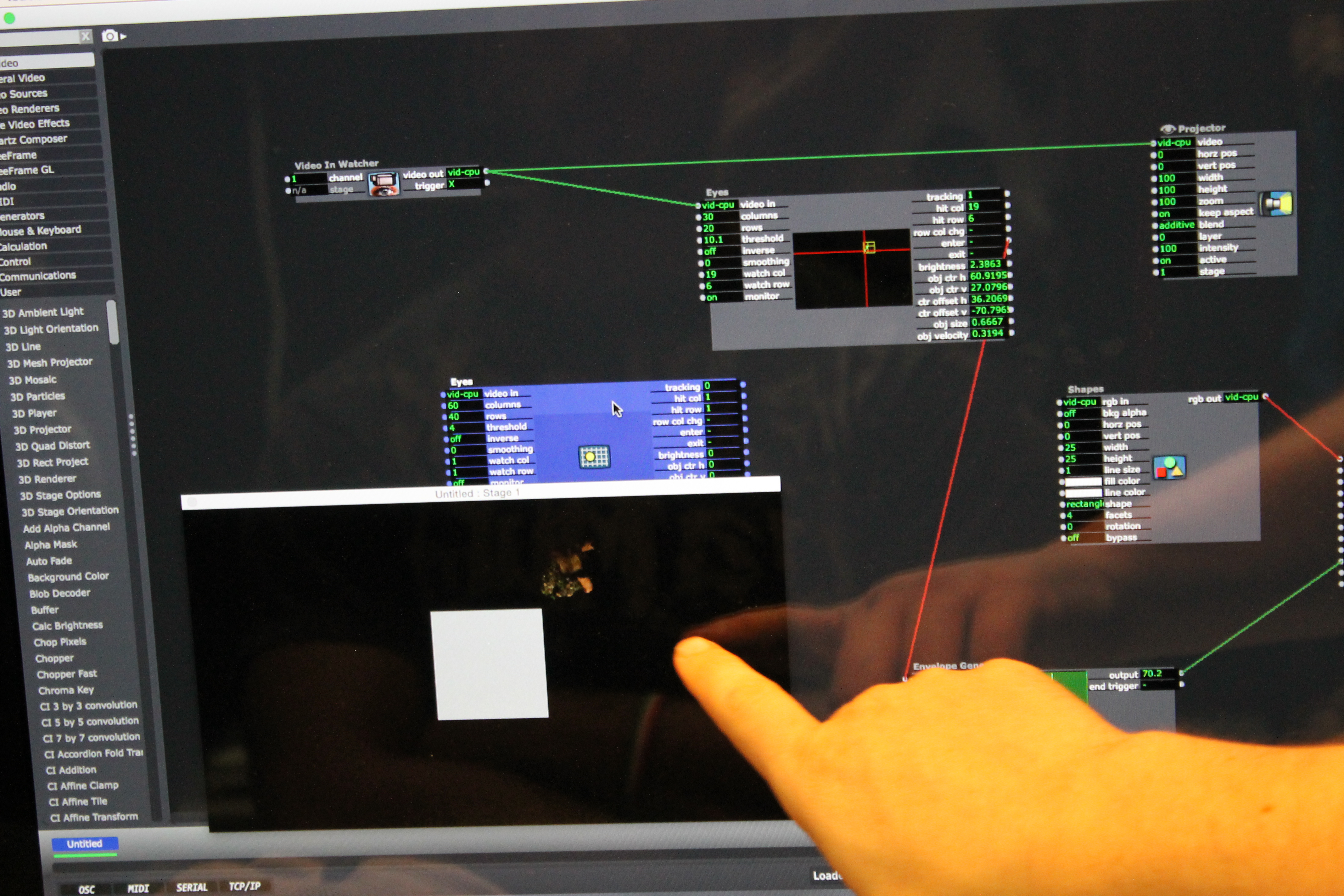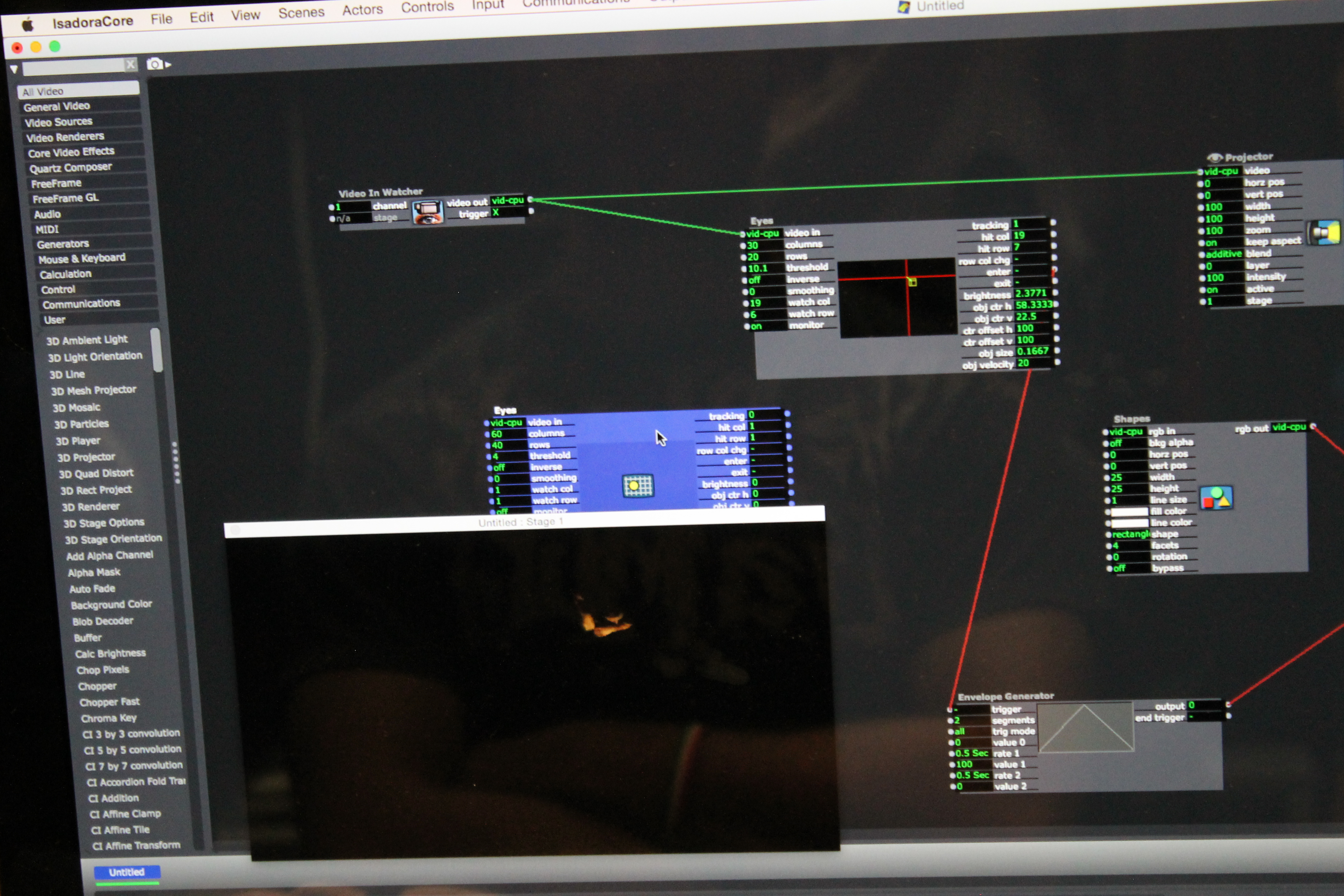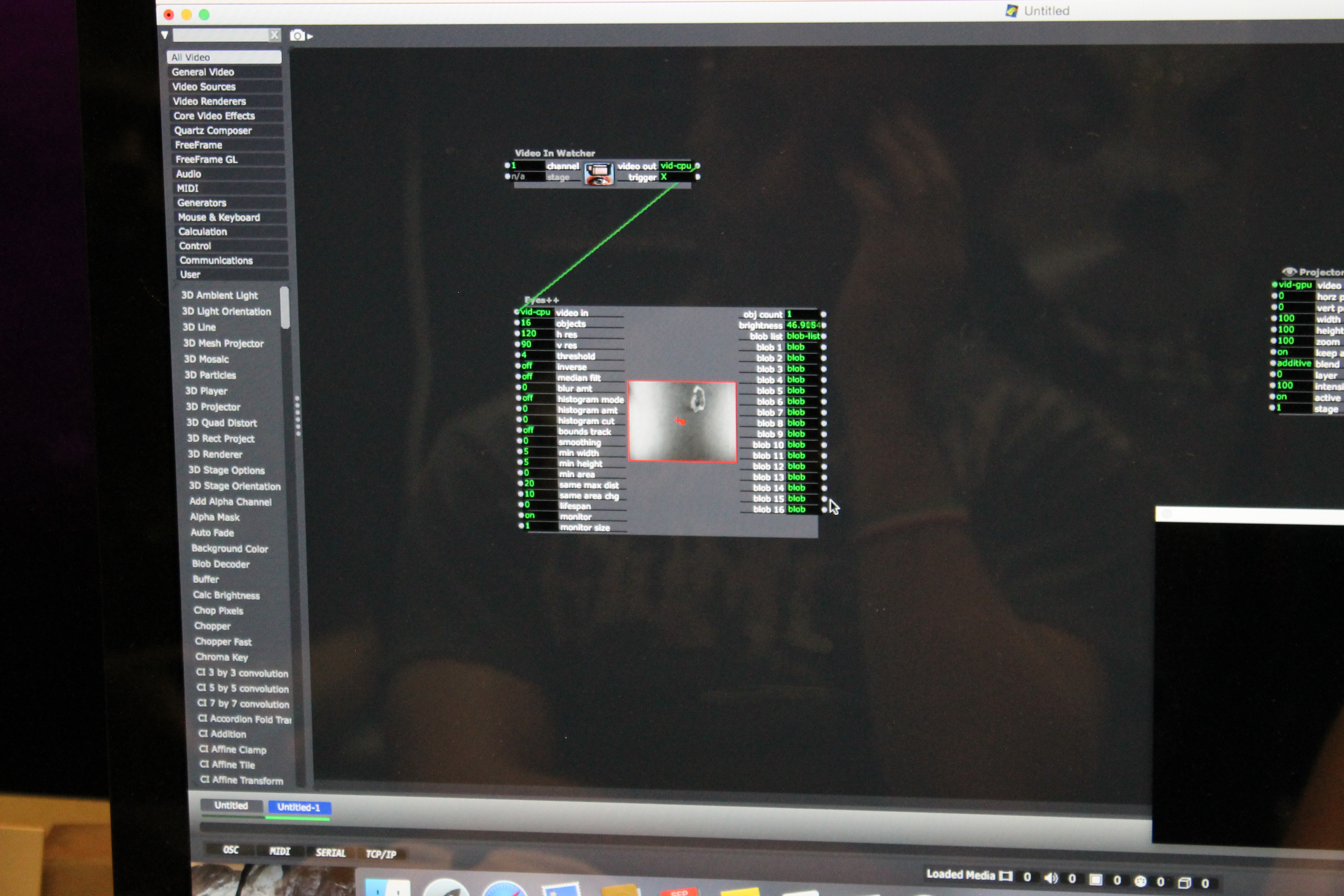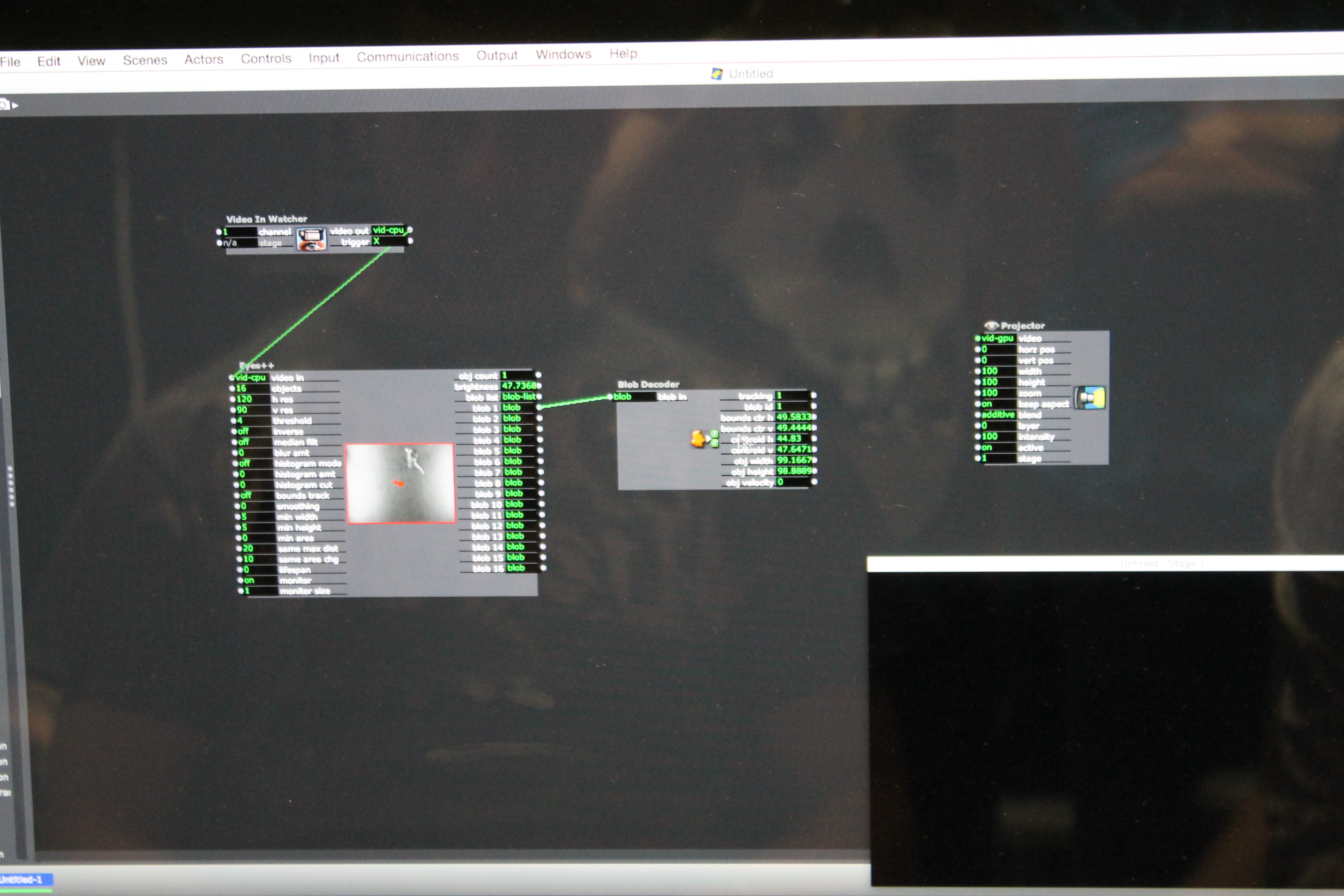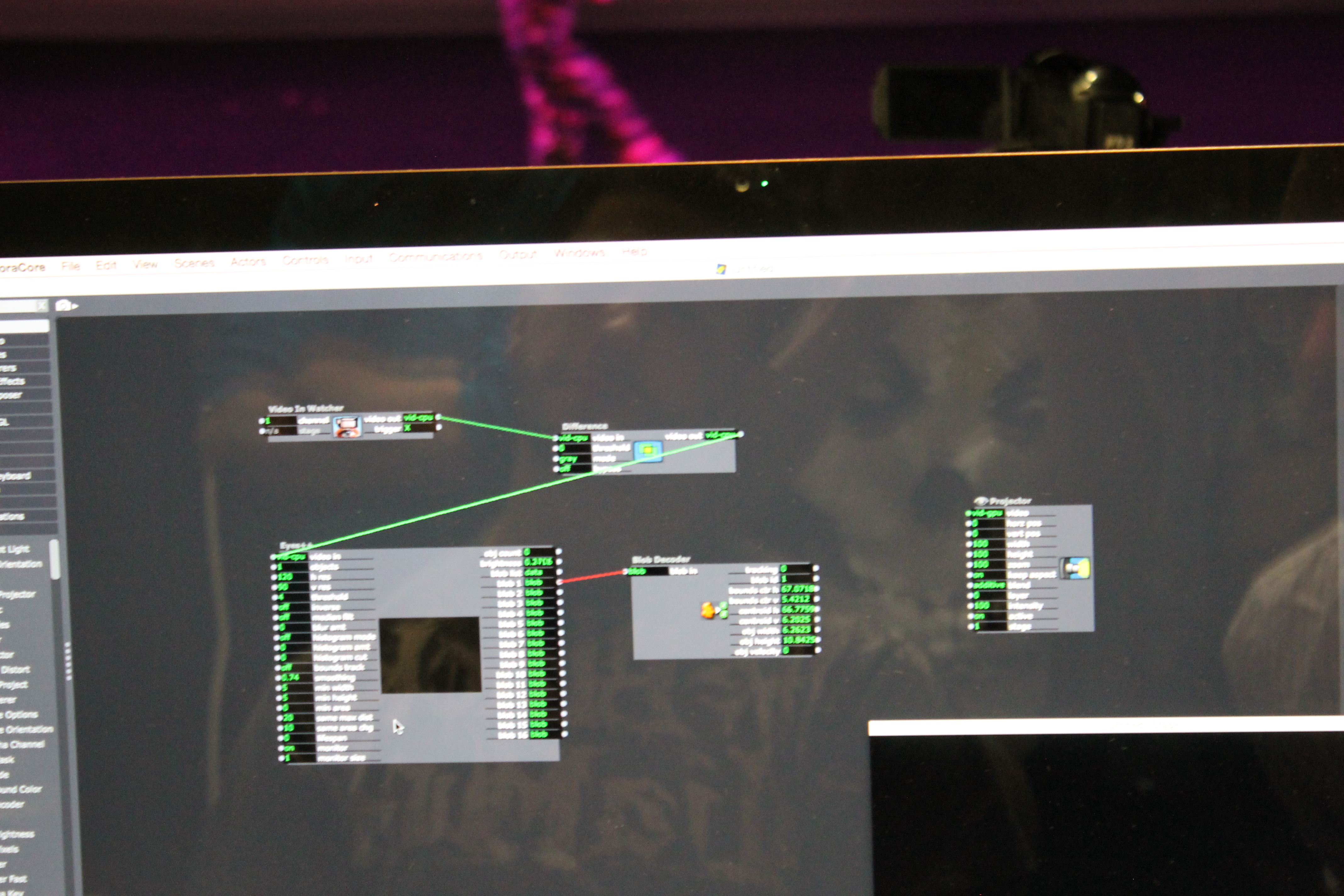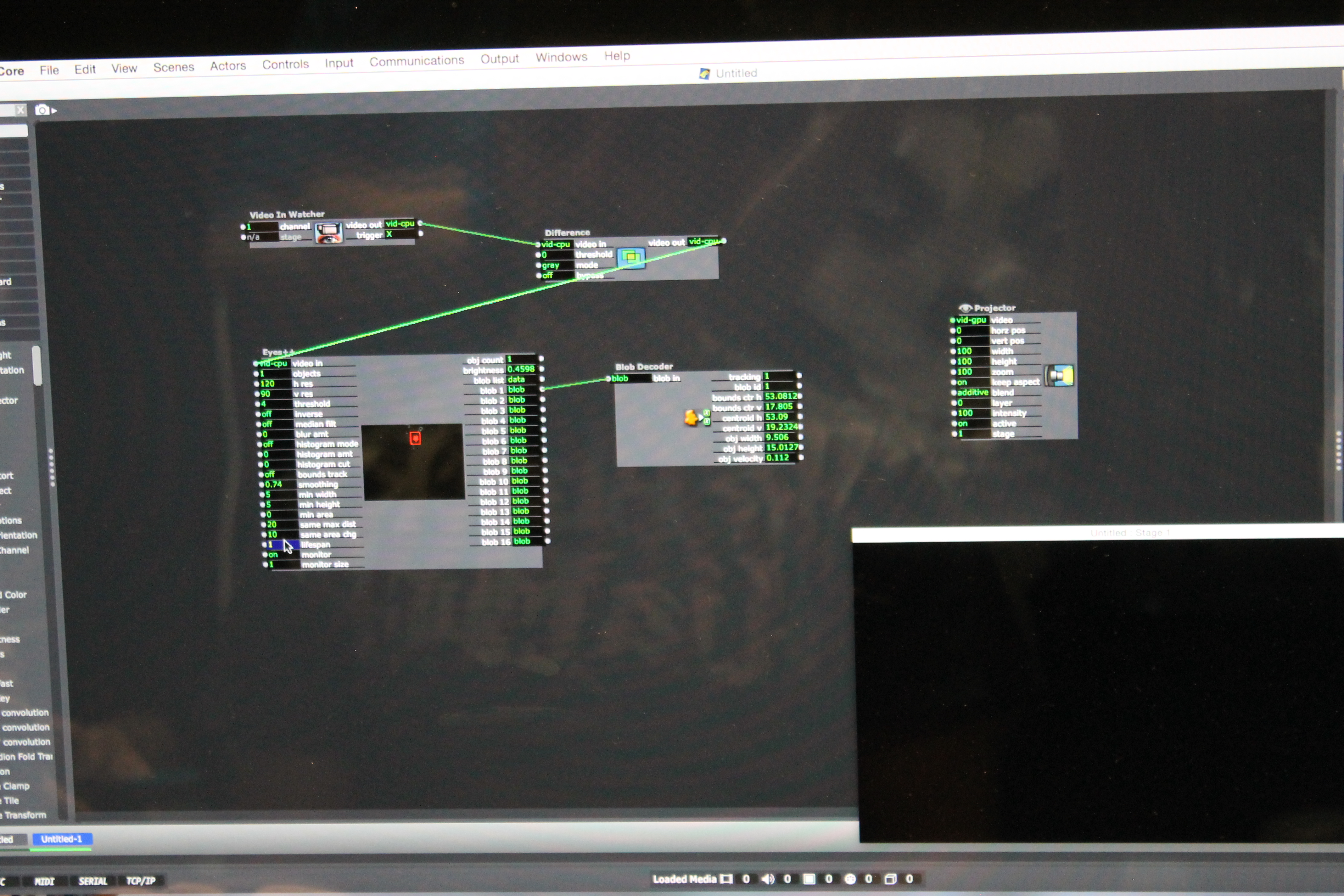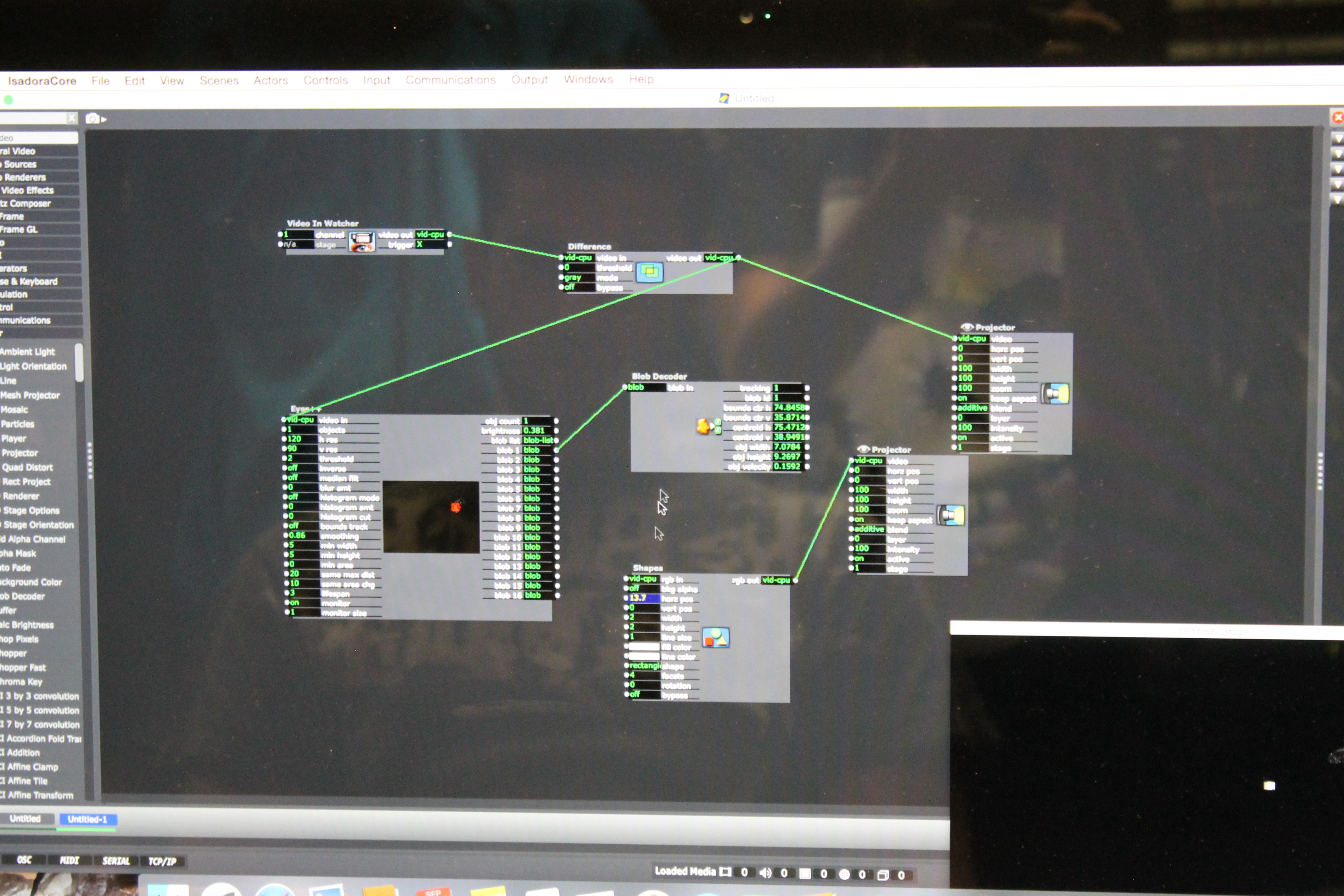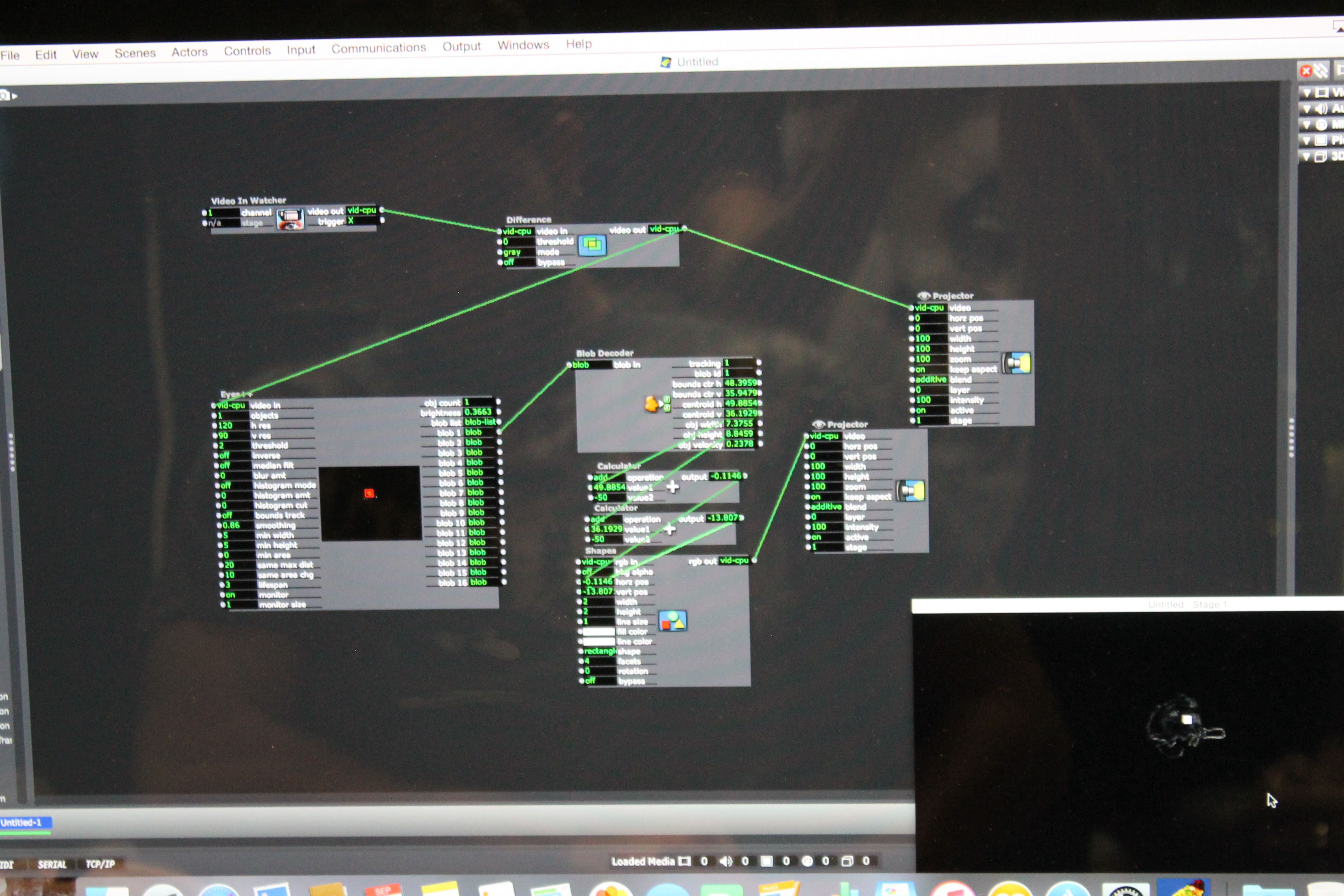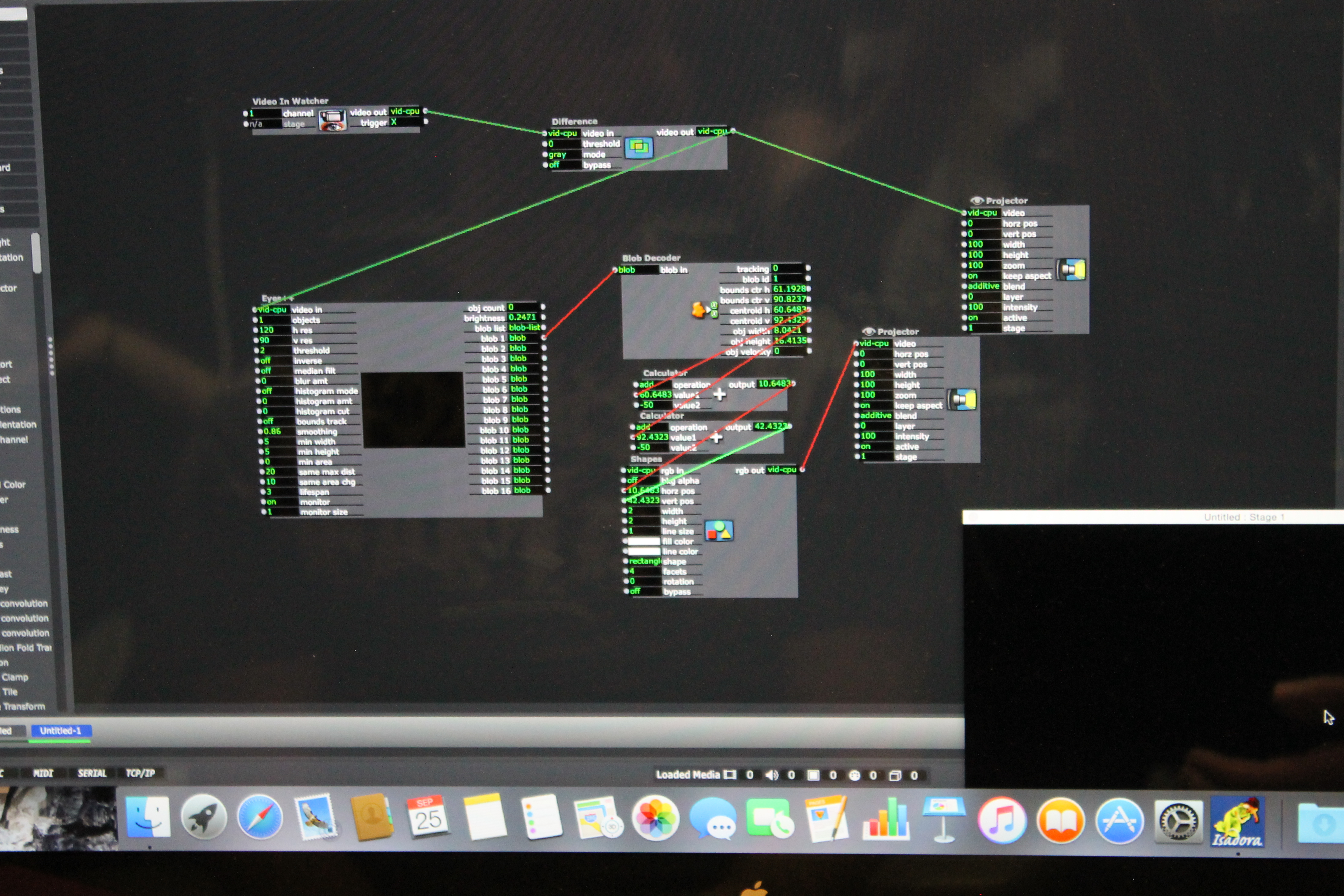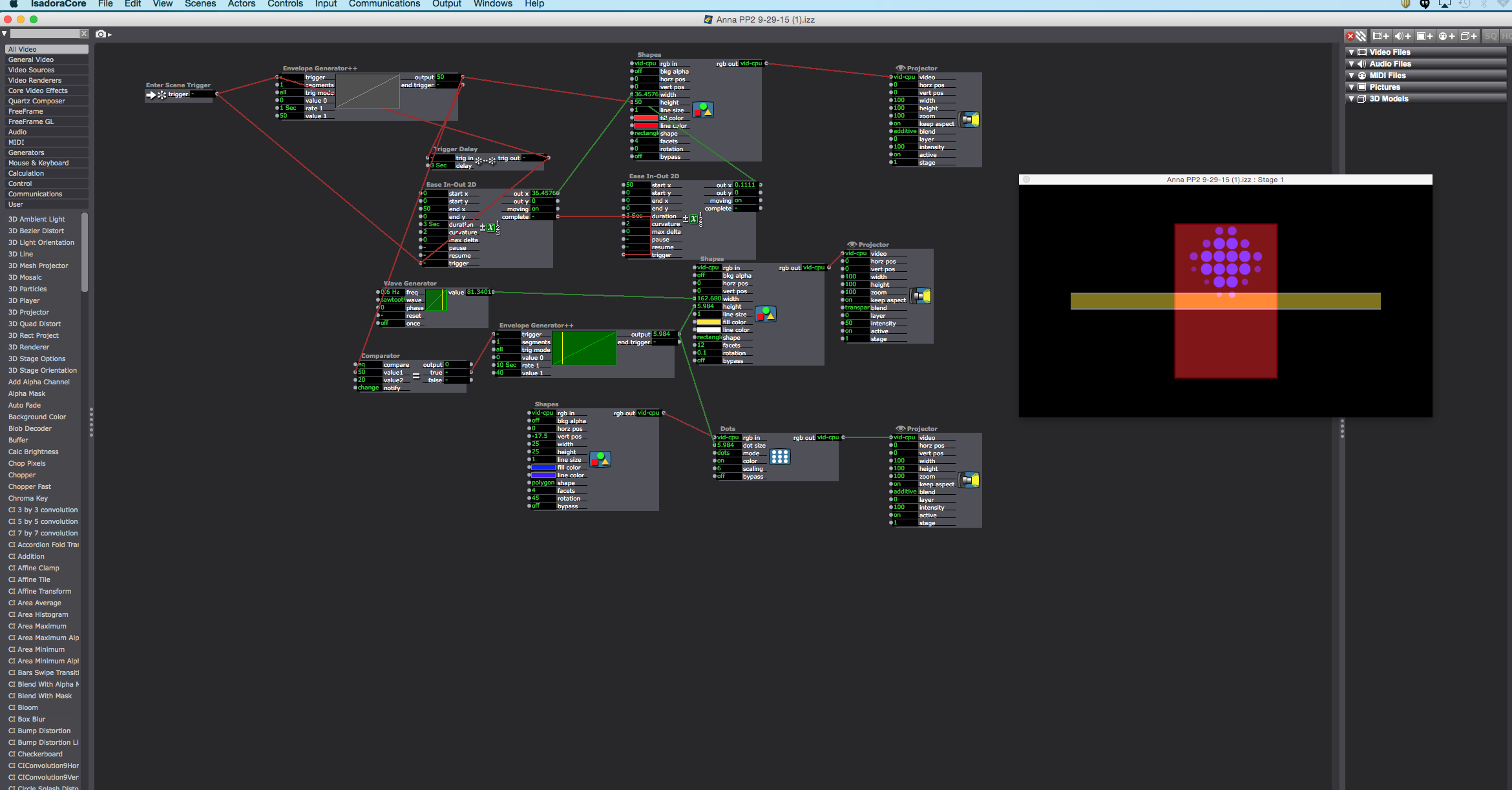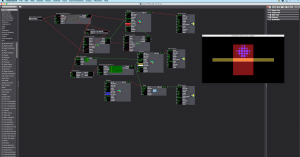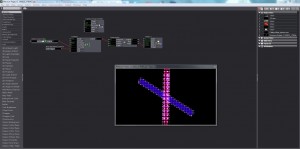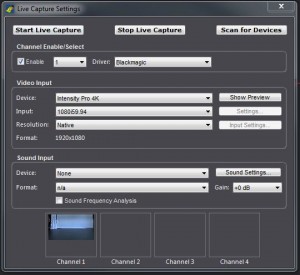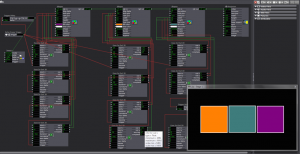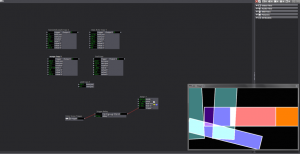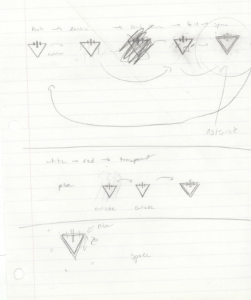Selecting Scenes
Posted: October 4, 2015 Filed under: Jonathan Welch Leave a comment »https://vimeo.com/141210159
I put together an animatic for my first idea for the scene selection.
The icons are purely arbitrary; we would probably want something more representational of the concept behind the individual scenes.
I am totally flexible on the idea, and it is dependent on being able to get reliable X Y positional data on the performer from the overhead camera…
Class notes on 9/30 regarding PP3
Posted: September 30, 2015 Filed under: Alexandra Stilianos, Uncategorized Leave a comment »PP3 GOAL: Create an interactive ‘dance’ piece (as a group), each should create a moment of reaction from the ‘dancer’
Group goals/questions:
- Focus on art!
- What will we do?
- How will we do it?
- What is my job?
- Establish perimeters and workflow?
- Understand the big picture?
- How is the sensing being done?
- What is the system design?
Resources:
- 4 projectors
- 3 projectors on floor
- 2 HDMI Cameras
- Top down camera with infra red
- Kinect
- Light/sound system
- Isadora
- Max/MSP
- Myo (bracelets)
- MoLa
- Various sensors (?)
Group 1: Sarah, Josh, Connor, “Computer Vision Patch”
- Turn on MoLa, video input, write simple computer vision (CV) patch that gives XY coordinates
- Program lighting system, provide outputs and know what channels they’re on
Channels (1- 10)
- x
- y
- Velocity
- Height
- Width
All x2 for the 2 cameras (top down and front), 2nd camera would be same identifiers but on channels 6-10.
Group 2: John, Lexi, Anna, “Projector System”
- Listen to channels 1-10 of 2 cameras, take data, create patch and a place for them (6 quadrants were discussed, each in charge of one)
Options:
- Create scenes and implement triggers
- Each create our own user actor in the same scene
(This is by no means an exhaustive or exclusive list, just my general notes from today!)
Pictures from the Class MoCap Patch from Monday 09/28
Posted: September 30, 2015 Filed under: Uncategorized Leave a comment »
On this screen
- Video In Watcher – Camera input
- Difference – areas that change (eg. moving around on the screen) are brighter
- Eyes ++ – finds “blobs” (eg. an area where the actor/user is on the screen)
***
On this screen
- Start Live Capture Settings (don’t forget to click the show preview, or you will not see anything)
***
On this screen
- Eyes vs. Eyes ++
- no “Blob” detector, but it will give you tracking data (eg. Center, Height, Width, Velocity)
***
On this screen
- Eyes vs. Eyes ++
- no “Blob” detector, but it will give you tracking data (eg. Center, Height, Width, Velocity)
***
Repetition & Repetition
Posted: September 30, 2015 Filed under: Anna Brown Massey, Pressure Project 2 Leave a comment »I made several pressure projects because I realized that in order to learn to build a system independently, I needed to start over multiple times. Each beginning was formed with support. Once I had created an initial course of shapes altered through actors to land in a projected stage, and I could progress through adding shapes and additional actors, I found I could look backwards to my initial connections in order to firmly establish which trigger in/outs were correct. I need to know I could manifest them again. So I started over. Replication was teaching me, but repetition was going to teach me better. And so, I’ve arrived at a rather mediocre little looping film of shapes with timed motion and transparencies as its the fourth miniature project of building similar projections. No doubt this restarting choice, with multiple short films was certainly influenced by a few other it’s-real-life factors: a flu, a power outage during my last project, and a subsequent broken computer in the last hours of plans to submit. (A note of gratitude to the OSU media lab in which I am now writing this post.)
The familiar challenge of building a looping project that sustains attention is not lost on this dance and filmmaker. Repetition tends to breed the encouragement to “look” elsewhere, e.g. that dancer has been doing the same forward and back run for a minute, he’s likely to continue, now I am free to examine other elements of the experience. When there are no other elements, attention may fade–or build with the sensation of subtle change or detail. I found with the initial shapes moving through the space, I engaged with an aesthetic draw; even if it repeats and is “boring,” if it’s “attractive,” it’s engaging. Or is it: if it’s engaging it’s attractive? In this last patch, there are three main shapes. How to make three shapes be just the most fascinating thing; this frankly, is not something I have yet arrived at, but with this project I am beginning to find the possibilities that I can actually do. Right now the bluntness of my abilities is blunting not my imagination but my ability to manifest ideas into an actual projection. (I’ve got some grand ideas for a new piano sonata, but I’ve got to learn to play the piano first, etc., etc.) Discovering the Dots actor and extending its own timing while changing its rotation felt like I was able to bring in an element that changed enough to sustain a slight furthering of a viewer’s attention. I had originally played with the Kaleidoscope Actor (misspelled in Isadora), imagining a wealth of change, but discovered it was not applying as generative change as I had expected. I applied Dots instead, recalling a colleague’s mentioning of their current favored actor for the project. I altered the color in addition to the rotation, played with its timing, and set it going in hopes of having a minute experience of moving shapes to keep you watching.
Pressure Project 2 Documentation
Posted: September 25, 2015 Filed under: Pressure Project 2, Sarah Lawler Leave a comment »For my pressure project I created 2 scenes which looped back and forth to one another. I wanted to play with as many new types of actors as I could while maintaining something comprehensive and interesting.
Scene 1
Scene 2
Isadora Live Camera Settings
Posted: September 25, 2015 Filed under: Isadora, Sarah Lawler, Uncategorized 1 Comment »Here’s the screenshot of the live camera settings for you all!
Computer Vision Example from Class
Posted: September 25, 2015 Filed under: Uncategorized Leave a comment »Here is the CV example from class today.
This file has been compressed. So make sure to unzip it before trying to open it in Isadora.
-Alex
Square Dance (literally-ish): PP2
Posted: September 24, 2015 Filed under: Alexandra Stilianos, Isadora, Pressure Project 2 Leave a comment »For Pressure Project #2, I created 4 different scene’s in Isadora, using various actors but the most helpful was the Ease in/out 2D to coordinate and consolidate the movements and sizes of the boxes. Enter scene triggers, values and delays were used to time the scenes and various other actors were used (dots, reflection, envelope generator++ etc.).
It was delightful in its simplicity and choreographed movement and it was automatic through the use of scene triggers to loop and repeat. Complexities came into play by varying the movement of the shapes and sizes after setting a constant with the first frame.
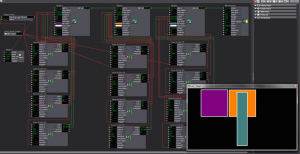 I *believe* we watched it for about a minute, time lapse achievement: unlocked. Some of the feedback from my classmates included the video being delightful (even looked like a bowtie at time) and that the shapes all had particular pleasing places to go as they overlapped. One suggestion/criticism was to include more boxes, which I agree with if time would’ve permitted.
I *believe* we watched it for about a minute, time lapse achievement: unlocked. Some of the feedback from my classmates included the video being delightful (even looked like a bowtie at time) and that the shapes all had particular pleasing places to go as they overlapped. One suggestion/criticism was to include more boxes, which I agree with if time would’ve permitted.
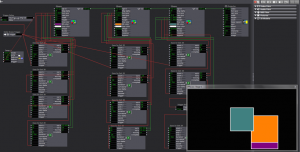
All in all: https://www.youtube.com/watch?v=Uuzmub5PXNQ
Duck… Duck… Duck. Duck…… Duck Duck……. Duck… Goose!!!
Posted: September 23, 2015 Filed under: Uncategorized Leave a comment »Let’s see…
Delightful: Check
Visually Pleasing: Oh yea!
Self generating patch of shapes, lines, and color: Check, check, and check (with a goose for good measure)
Level 1: System is fully automatic and only requires being ‘turned on’
Fully automated??? It’s practically self aware!
Level 2: System produces multiple visual ‘looks’ or ‘feels’
You got your duck look; you got your goose look.
Level 3: Any underlying pattern in the systems movement and visual state is complex enough that a human takes more than a few seconds to ‘understand the pattern.’
Everything is randomized, even the starting and stopping of the random sequences.
Bonus Level: System produces unexpected results over time.
No one expects a goose…
Bonus Level: Maintains a watchers attention for more than 20-30 seconds. (Much harder then one might guess. How do we do this in the theatre and dance? [Can your system tell a story?])
A complex visual tale of binary, conflicting pairs. Up and down, or left and right; never together.
This is a compressed copy with no audio.
I will elaborate on all this after I write the paper that is due tomorrow morning.
PP 2 “Planet A”
Posted: September 23, 2015 Filed under: Connor Wescoat, Pressure Project 2 Leave a comment »Intro:
While the initial influence for this project was to be loosely based around a “Mondrian” piece of art, my musical influences got in the way of that and I chose to try something with a slightly different dynamic. I am a pretty big fan of metal and core music and one band in particular that I cannot seem to get enough of recently is “The Devil Wears Prada” who are a “metalcore” band from good ole Dayton, OH. This band on their recent recordings and stage shows have chosen to use this kind of provoking, slightly sadistic, triangle shape shown below.
- Level 1: Check, I was able to fire the whole scene with one trigger
- Level 2: Check, the scene fades from one simple image to another, more complex piece with different movements and animations
- Level 3: Check, my second scene takes a couple loops to figure out what is happening but is simple enough to predict the repeating action
- Bonus 1: Blank, The scenes follow a repeated pattern with no variability after the first loop
- Bonus 2: Maybe?, While the scene is simple, I believe that the pattern and interplay between the shape, background animation and movement creates a hypnotic feel within the piece.
